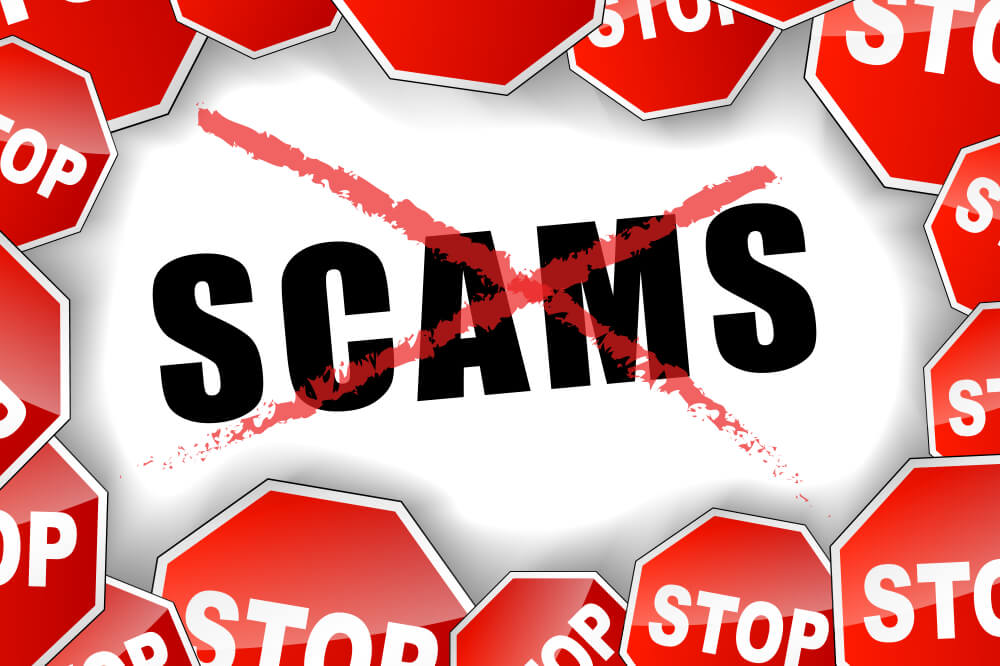
by Vee Daniel, President/CEO of Better Business Bureau of the Upstate
Telemarketing scams, “anti-aging” product scams, prescription drug scams, health insurance scams – the ways that fraudsters target the elderly are numerous and growing by the day. Your Better Business Bureau continues to remind consumers to be on the lookout for scammers trying to drain the bank accounts of seniors. If you are an older American or have a family member or friend who is, please take a few minutes to acquaint yourself with the following BBB tips on how to steer clear of the crooks trying to steal senior citizens’ money.
Why They Target Seniors
The elderly often have these traits that make them attractive to scammers, according to the FBI:
- They are more likely to have a “nest egg,” own their home and have good credit.
- They have an easily exploitable characteristic: they were raised to be polite and they have difficulty saying “no” and hanging up the phone.
- They are more likely to be interested in products that promise to offset the physical and mental effects of aging.
- Aging memories can be less reliable, making seniors poor witnesses to the fraud. The realization that a scam has taken place may take a longer period of time.
- They may be reluctant to report the fraud because they don’t want their own family members to think that they are vulnerable due to diminished mental capacity.
Most Common Elder Scams
Here are some of the more common scams on seniors, though there are many more not listed here:
- Grandparent scam – A scammer poses as a grandchild in a desperate situation and in need of money wired to them.
- Medical equipment fraud – “Free” products are offered to consumers, then charge insurers for unneeded or never-delivered services and equipment.
- Utility scams – Fake calls claiming to be from utility companies claim services are about to be discontinued unless money is sent immediately.
- Jury duty scam – A caller claims you did not show up for jury duty and are threatened with arrest unless a fine is sent at once.
- Lottery scams – Claiming you’ve won a foreign lottery, the caller will request a payment for “taxes and fees” so you may collect your “winnings.”
- IRS scam – This very popular scam is a caller claiming to be from the IRS and demanding immediate payment of overdue taxes, threatening arrest if no money is given.
- Medicare and Social Security scams – Callers or emailers claiming they represent one of these and wanting to “update your information” or “create a new account” for you should be regarded as scammers and ignored.
Protecting Yourself
Here are some ways to insure that scammers don’t get your money:
- Screen your phone calls. Only answer or return calls from people you know.
- If you do find yourself in a phone conversation with someone claiming to be a charity, tell them you do not give money to strangers over the phone and ask that they mail information to you.
- Never give out account numbers or other private information to a stranger on the phone.
- Never click on links in unsolicited emails.
- Remember: No government entity will ever contact you through email. If they claim to be from the government, they are scamming you.
Senior citizens and friends and family of senior citizens should stay diligent as they watch for the many crooks out to steal from them. Sign up for the Do Not Call Registry at donotcall.gov. Find out more about elder scams by visiting consumerfinance.gov/older-americans.
We hope that you never do, but should you become the target of a scam, call the BBB Elder Fraud program hotline at (864) 240-2080. You can also email questions or concerns to info@upstatesc.bbb.org. The mission of the BBB Elder Fraud program is to assist seniors in recognizing and resisting fraudulent offers and possible.



